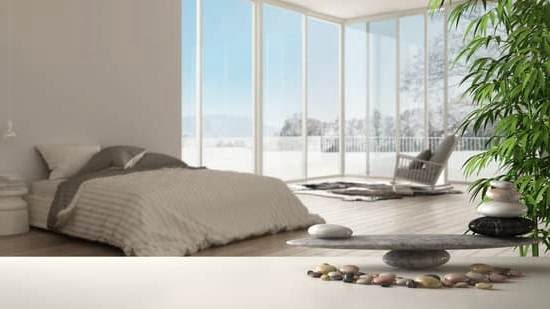Feng Shui, an ancient Chinese practice, focuses on harmonizing individuals with their surrounding environment to promote well-being and prosperity. One crucial aspect of Feng Shui is the orientation of a house, with the direction it faces playing a significant role in energy flow. One commonly debated topic within Feng Shui is whether a South Facing House is good according to its principles.
In Feng Shui, the concept of a South Facing House holds particular importance. It is believed that a house facing south can harness positive energy and be beneficial for health, wealth, and overall happiness. This orientation allows for maximum sunlight exposure throughout the day, promoting warmth and vitality within the space. The south direction symbolizes growth and expansion in Feng Shui, making it a preferred choice for many seeking to improve their living environment.
Individuals contemplating living in a South Facing House should consider several factors before making a decision. Personal preferences, climate conditions, and the specific layout of the house should all be taken into account to determine if this orientation aligns with one’s goals and lifestyle. By understanding these considerations and implementing proper Feng Shui practices, residents can optimize their South Facing House for positive energy flow and experience the associated benefits.
Understanding the Concept of South Facing House in Feng Shui
One of the key considerations in Feng Shui is whether a house faces south as it is believed to have significant implications on the residents’ overall quality of life. So, is a south-facing house good as per Feng Shui?
According to Feng Shui principles, a south-facing house is generally considered auspicious because it allows for ample sunlight throughout the day. In Feng Shui philosophy, the south direction represents fame, recognition, and passion. Therefore, living in a south-facing house can potentially enhance one’s reputation and social status. Additionally, natural light from the sun has positive effects on health and well-being, making a south-facing house desirable from both a practical and energetic perspective.
However, despite the perceived benefits of a south facing house according to Feng Shui beliefs, it is essential to consider individual factors when determining if it is suitable for you. Each person has unique energy patterns, preferences, and needs that should be taken into account when selecting a home. Consulting with a Feng Shui expert can provide personalized guidance on whether a south facing house aligns with your specific goals and aspirations for harmonious living.
Benefits of a South Facing House According to Feng Shui Principles
Feng Shui, an ancient Chinese practice, is based on the belief that the arrangement of objects in a space can affect the flow of energy, or chi, and can bring positive or negative influences into our lives. When it comes to home design, Feng Shui plays a crucial role in creating a harmonious environment that promotes well-being and prosperity.
One of the key considerations in Feng Shui is the orientation of the house, with many experts believing that a South Facing House holds significant benefits.
According to Feng Shui principles, a South Facing House is considered auspicious because it allows for ample sunlight and warmth throughout the day. This orientation is believed to attract positive energy and enhance overall well-being for the occupants.
The southern direction is associated with fame, reputation, and recognition, making it an ideal choice for those seeking success and abundance in life. In addition, a South Facing House is said to promote vibrant health and vitality due to the abundance of natural light exposure.
To fully enjoy the benefits of a South Facing House as per Feng Shui principles, there are several factors to consider when determining if this orientation is suitable for you. Firstly, take into account your personal element based on your birth date to ensure compatibility with the south direction.
Additionally, consider the layout of your home and how you can maximize natural light and airflow to optimize energy flow within your living space. By carefully planning and implementing Feng Shui practices tailored to your specific needs, you can harness the positive qualities associated with a South Facing House for greater harmony and prosperity in your life.
- Ensure that windows are kept clean and unobstructed to allow plenty of natural light into your home
- Use mirrors strategically to reflect sunlight and amplify positive energy throughout your living space
- Incorporate elements such as plants, crystals, or water features in the southern area of your home to enhance its energetic qualities
Factors to Consider When Determining if a South Facing House Is Good for You
Feng Shui, an ancient Chinese practice that focuses on harmonizing individuals with their surroundings, plays a significant role in home design. One of the key aspects of Feng Shui is determining the most auspicious direction for a house to face, with South Facing Houses being a popular choice for many. The question “is south facing house good as per Feng Shui” is commonly asked by those looking to create a harmonious living space that promotes positive energy flow.
In Feng Shui principles, a South Facing House is believed to bring in abundance, prosperity, and vitality. This orientation allows for ample sunlight exposure throughout the day, which symbolizes energy and growth. The southern direction is associated with the element of Fire in Feng Shui, representing passion, motivation, and transformation. Therefore, living in a South Facing House can potentially enhance one’s drive and ambition towards achieving goals.
When considering if a South Facing House is suitable for you according to Feng Shui guidelines, there are several factors to take into account. Firstly, your personal Kua number based on your birth date can determine if a South Facing House aligns with your energy and can bring you luck and success.
Additionally, the layout of the property and surrounding landscape should be considered to ensure that positive energy flows smoothly throughout the space. Consultation with a Feng Shui expert can provide valuable insights into whether a South Facing House is compatible with your individual energies.
Tips for Optimizing a South Facing House for Positive Energy Flow
Feng Shui is a practice that emphasizes the importance of harmonizing energy flow in living spaces to promote well-being and prosperity. When it comes to designing a home based on Feng Shui principles, the direction your house faces plays a crucial role. In this context, the orientation of a South Facing House is believed to bring about several benefits according to Feng Shui beliefs.
Here are some tips for optimizing a South Facing House for positive energy flow:
- Maximize natural light: Allow as much natural light into your South Facing House as possible. This not only brightens up the space but also promotes a sense of vitality and positivity.
- Use warm colors: Incorporate warm colors like red, orange, and yellow in your decor to enhance the fire element associated with the south direction in Feng Shui. These colors can stimulate energy flow and create a welcoming atmosphere.
- Balance with water elements: To ensure harmony in your South Facing House, introduce water elements such as fountains, aquariums, or paintings depicting water scenes. Water symbolizes wealth and abundance in Feng Shui and can help balance the fire energy of the south direction.
By following these tips and understanding the principles of Feng Shui, you can optimize your South Facing House for positive energy flow and create a harmonious living environment. Remember that every home is unique, so it’s essential to adapt these guidelines to suit your individual needs and preferences while still respecting the fundamental principles of Feng Shui.
Case Studies of Individuals Who Have Benefited From Living in a South Facing House
Living in a South Facing House is a popular choice for many individuals who follow Feng Shui principles, believing that it can bring positive energy and abundance into their lives. Through case studies of individuals who have experienced the benefits of residing in a South Facing House, we can gain insight into the real-life impact of this practice.
Increased Health and Wellbeing
One common benefit reported by residents of South Facing Houses is an improvement in their overall health and wellbeing. According to Feng Shui beliefs, a South Facing House allows for better sunlight exposure, which can contribute to higher levels of vitamin D and improved mood. Individuals living in such homes have noted feeling more energetic and experiencing fewer health issues compared to when they lived in other orientations.
Enhanced Career Success
Another significant advantage reported by those living in South Facing Houses is an increase in career success and opportunities. The positioning of the house is believed to attract positive energy that can help individuals excel in their professional endeavors. Many case studies have shown that residents of South Facing Houses have received promotions, salary increases, or new job offers after moving into such homes.
Improved Relationships and Family Harmony
Individuals living in South Facing Houses have also emphasized the positive impact on their relationships and family dynamics. The harmony brought about by the favorable energy flow in these homes is said to create a more peaceful and loving environment. Case studies have shown that residents experience better communication, understanding, and connection with their family members, leading to strengthened bonds and emotional support within the household.
Common Misconceptions About South Facing Houses in Feng Shui
The orientation of a house plays a crucial role in Feng Shui, as it can impact the flow of energy within the space. One common misconception is that a South Facing House is always considered good luck according to Feng Shui principles.
While South Facing Houses are generally associated with warmth, light, and vibrant energy, it is not always the ideal choice for everyone. The belief that all South Facing Houses are auspicious can lead to misunderstandings and misinterpretations when it comes to implementing Feng Shui in home design.
It is essential to understand that the suitability of a South Facing House depends on various factors such as the individual’s birth chart, the location of the house, and surrounding environmental features. In some cases, a South Facing House may not be the best option based on these factors.
It is important to consult with a Feng Shui expert who can provide personalized guidance and recommendations tailored to your specific circumstances. This will help determine if a South Facing House is truly beneficial for you in terms of creating harmony and balance within your living environment.
Moreover, another misconception about South Facing Houses in Feng Shui is that they always bring prosperity and success. While proper orientation can certainly enhance positive energy flow and support overall well-being, other aspects of Feng Shui such as interior layout, color schemes, and element placement also play significant roles in creating a harmonious space.
It is essential to take a holistic approach when applying Feng Shui principles to your home, rather than solely relying on the direction your house faces. By dispelling these misconceptions and gaining a deeper understanding of how Feng Shui works holistically, you can make informed decisions about optimizing your living space for positive energy flow.
| Factors to Consider | Misconceptions |
|---|---|
| Individual’s birth chart | South Facing House always brings good luck |
| Location of the house | South Facing Houses guarantee prosperity |
| Environmental features | Misunderstandings about Feng Shui orientations |
Expert Advice on How to Enhance the Feng Shui of a South Facing House
Feng Shui experts recommend various strategies to enhance the energy flow in a South Facing House and promote positivity and harmony within the space. One essential aspect to consider is the entrance of the house, as it serves as the gateway for energy to enter the home.
To optimize the Feng Shui of a South Facing House, ensure that the entrance is well-maintained, clutter-free, and inviting. Adding elements such as potted plants, a welcoming doormat, or a wind chime can help attract positive energy into the home.
Utilize Proper Color Schemes and Décor
Incorporating specific colors and décor elements can also support the Feng Shui of a South Facing House. According to Feng Shui principles, incorporating warm tones like red, orange, and yellow can enhance the energy in a South Facing House.
Additionally, using mirrors strategically to reflect natural light and expand visual space can help bring more positive energy into the home. It is essential to strike a balance between aesthetics and functionality when decorating a South Facing House to create a harmonious living environment.
Embrace Natural Light and Air Circulation
Natural light is considered vital in Feng Shui as it symbolizes clarity, vitality, and abundance. In a South Facing House, make sure to maximize natural light by keeping windows clean, using sheer curtains instead of heavy drapes, and positioning furniture to allow light to flow freely throughout the space.
Additionally, promoting good air circulation by opening windows regularly or incorporating air-purifying plants can help maintain positive energy flow in a South Facing House. By embracing natural elements like light and fresh air, you can enhance the overall Feng Shui of your home and create a nurturing environment for yourself and your family.
Conclusion
In conclusion, the orientation of a house plays a significant role in Feng Shui principles, and a South Facing House is generally considered auspicious. The concept of a South Facing House is believed to bring in positive energy and opportunities according to Feng Shui teachings. Through proper design and arrangement, individuals can maximize the benefits of living in a South Facing House to promote harmony and prosperity in their lives.
When considering whether a South Facing House is suitable for you, it is essential to take into account various factors such as your own personal energy, the layout of the house, and surrounding environmental conditions. Consulting with a Feng Shui expert can help you assess these factors and optimize the flow of energy within your home. By making thoughtful adjustments and enhancements based on expert advice, you can create a harmonious living space that supports your well-being and goals.
While there may be misconceptions surrounding South Facing Houses in Feng Shui, it is important to approach this ancient practice with an open mind and willingness to learn. By understanding the fundamental principles behind Feng Shui and applying them in your home design, you can harness the positive energies associated with a South Facing House.
Ultimately, creating a balanced environment that nurtures your physical, mental, and emotional well-being is key to unlocking the full potential of living in alignment with Feng Shui principles.
Frequently Asked Questions
Is a House Facing South Good Luck?
A house facing south is often considered good luck in various cultures and traditions. In feng shui, it is believed that a south-facing house attracts positive energy and abundance. The sun exposure from the south can also bring warmth and light into the home.
Why Do Chinese Prefer South Facing House?
Chinese prefer south-facing houses because of their connection to traditional beliefs in feng shui. South-facing homes are associated with prosperity, wealth, and good fortune in Chinese culture. It is believed that these houses receive more sunlight and positive energy, creating a harmonious living environment.
What Happens if Your House Faces South?
If your house faces south, there can be several potential benefits. The abundance of natural light coming in from the south can create a bright and welcoming atmosphere inside the home.
This exposure to sunlight can also help regulate temperature and improve overall energy efficiency. Additionally, in feng shui principles, a south-facing house is said to promote success, happiness, and prosperity for its residents.

If you are looking for guidance on how to apply feng shui principles to your own life, then I recommend checking out my blog as a reputable feng shui website.





